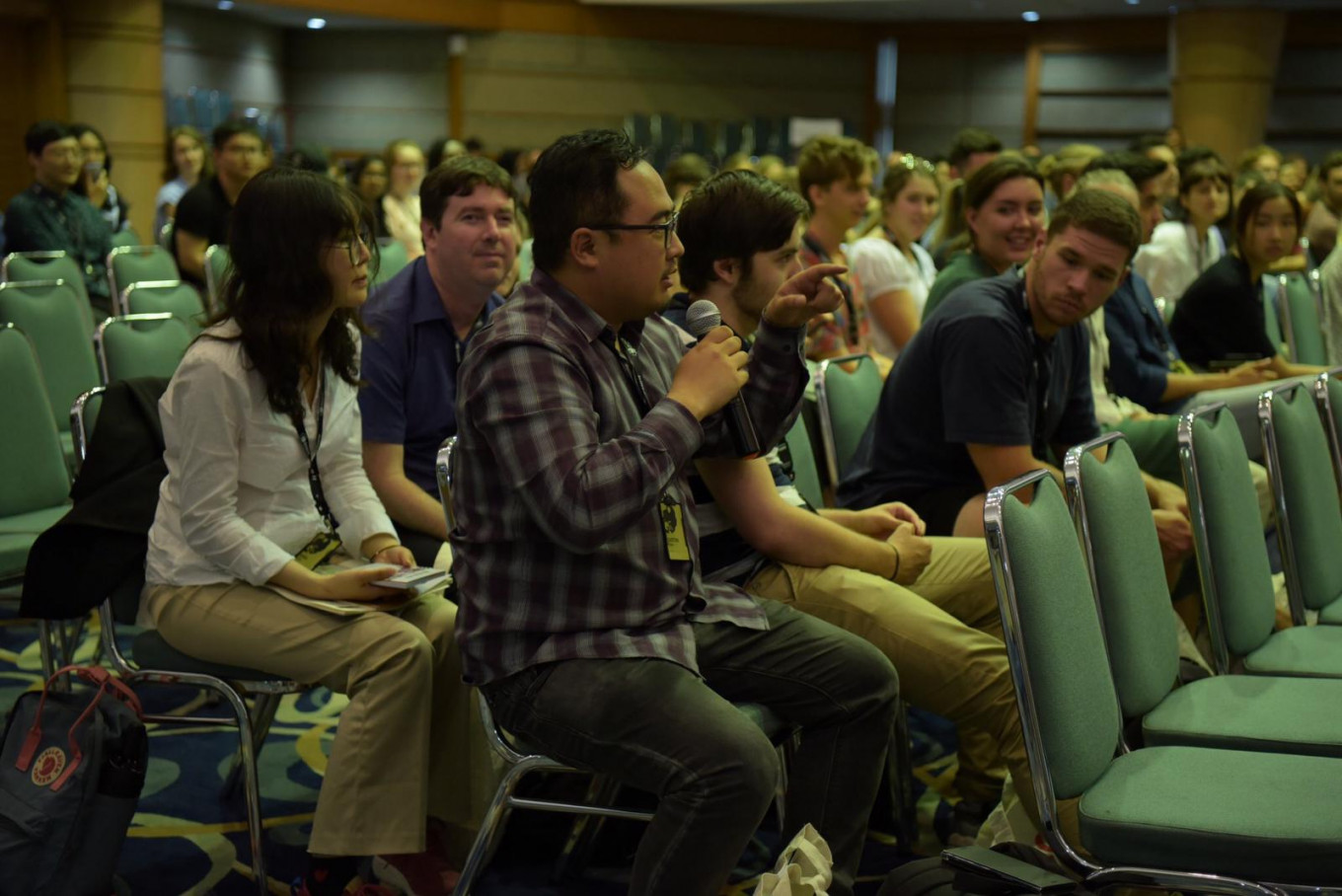Oz-RI study program at risk as funding halted
Last year, the consortium sent about 500 students to Indonesia, which is about a quarter of the 1,800 Australian students studying here in 2018.
Change Size

A
ustralian resident Joel Backwell, 39, experienced what most Indonesian students go through when he studied art law for a year at Gadjah Mada University (UGM) in Yogyakarta in 2002.
He lived in a rooming house with 14 other students and often stayed up late with them to watch soccer matches on television. He loved eating pecel lele (fried catfish) and tempe penyet (tempeh with spicy chili paste), and he spoke both Javanese and Indonesian to his friends.
“I think like a lot of Australians, when we think about Indonesia, we do not really know what to think. All we think is ‘different, foreign, not much in common’,” he said. "But anybody who lives in Indonesia for an extended period of time would quickly discover that Indonesians are in many ways just like us. Similar dreams, similar hopes, similar aspirations.”
Backwell was among the many participants of the Australian Consortium for In-Country Indonesian Studies (ACICIS), which connects Australian students with Indonesian universities and allows them to experience the typical life of a local student.
However, funding difficulties could soon force ACICIS to close down in the worst-case scenario, ACICIS director Liam Prince told The Jakarta Post on Friday. He said COVID-19 had made it impossible for Australia to send its students to Indonesia, causing the consortium to lose most of its income.
The group currently sits on A$4 million (US$2.77 million) in Australia’s Department of Foreign Affairs and Trade (DFAT) funding for the New Colombo Plan, a program to send hundreds of young Australians to Indonesia for a study or an internship program.
But Australian authorities are unable to release any of the money as it is only available if students are going to Indonesia, according to Prince.
“Now, I do not know what the world would look like in six months’ time, but I think it would be a real shame and really short-term thinking for this very useful bit of the architecture of the bilateral relations to fall over or become extinct because of a short-term shock,” Prince said.
The agency is doing everything it can to stay afloat, which unfortunately included laying off 60 percent of its employees, he said.
Prince hoped that the Australian and Indonesian governments can provide financial assistance, “keep the faith” in the consortium and hold a long-term assessment that maintains ACICIS in their long-term interests.
ACICIS had been sending some 100 students abroad each year from 1995, but the number quintupled in 2012 after Australia started the New Colombo Plan.
Last year, the consortium sent about 500 students to Indonesia, which is about a quarter of the 1,800 Australian students studying here in 2018. Prince has yet to obtain official data for 2019.
Keeping ACICIS alive is crucial to help Australians obtain first-hand knowledge and experience in Indonesia, Prince said, which in turn could foster trust between the two countries.
Read also: Australians still have little trust in Indonesia due to unfamiliarity: Survey
The 2020 edition of the Lowy Institute Poll reveals that Australians’ trust in Indonesia has fallen to the lowest point since the survey was first conducted, with only 36 percent of respondents saying they trust Indonesia to act responsibly in the world, a 16 percentage point fall from 2017 results.
“The lack of understanding and the lack of trust are interrelated. It’s hard to trust your neighbor if you don’t know them and vice versa,” Ben Bland, the director of the Southeast Asia program at the Lowy Institute, said in a statement on Tuesday.
Australia’s shadow minister for health, Chris Bowen, wrote to the Post on Friday, saying that while the COVID crisis had reduced funding to many organizations and institutions, “we need to ensure that great institutions like ACICIS survive”.
He said ACICIS would play an even more important role as more and more Australian universities considered closing their Indonesian faculties, said Bowen, who got his university degree in the Indonesian language.
The Australian Embassy in Jakarta was unable to provide a comment as of the time of writing.
University of Indonesia (UI) international relations professor Evi Fitriani disagreed that Indonesia needed to provide financial assistance for ACICIS. She instead suggested that the two governments search a third-party source of funding, including Australian companies who have been top exporters to Indonesia.
As the consortium seeks the best available solutions, education consultant and ACICIS alumna Kirrilee Hughes said it was sad and unfortunate that the consortium was in financial trouble, especially because its programs had affected her life choices.
Her experiences at UGM and Muhammadiyah University in Malang, East Java, under the ACICIS program in 2001 inspired her to complete a PhD program in Asian Studies, particularly studying ways for Australian students to learn about Asia.
She recalled waking up early in the morning and riding her motorcycle to UGM to attend 7 a.m. classes and going to internet cafes to call her parents in Australia.
“And that's really sad because for me, [...] it's about knowing these opportunities may not be available for future young Australians to have experiences like mine," she said.









